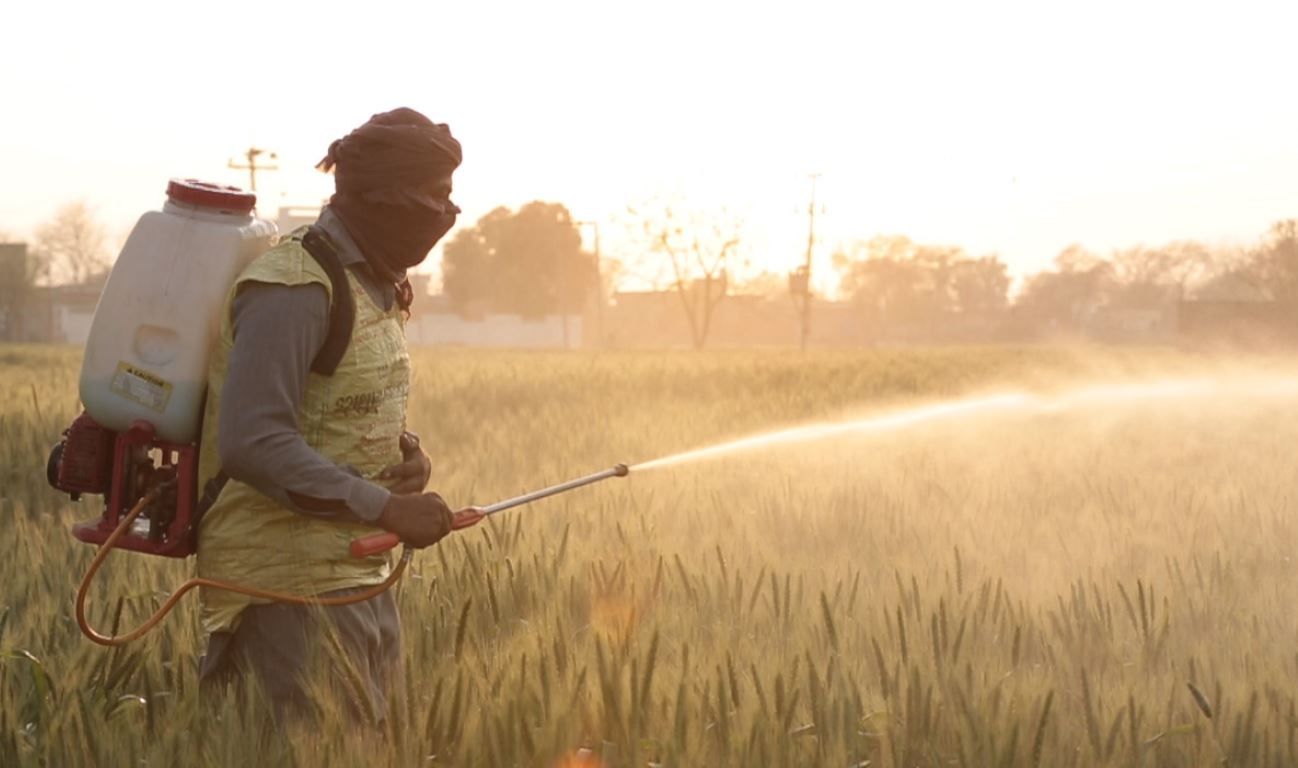Switzerland is exporting banned pesticides to developing countries
Lausanne/Zurich, 8. May 2017

Four shipments of paraquat and thirteen of atrazine were registered in Switzerland between 2012 and 2016. They were destined for Argentina, Brazil, Cameroon, China, India, Pakistan, Peru and Thailand. Although the redacted documents received by Public Eye from the Federal Administration hide the name of the exporting company, there is no doubt that they concern Syngenta, the global leading maker of pesticides that declared an almost ten billion dollar turnover in this sector in 2016. The Basel-based firm is the market leader in paraquat and atrazine sales, with between 40 and 50% global market share. The total export value of herbicides for Switzerland reached over 180 million francs in 2016.
Paraquat and atrazine were prohibited in the European Union due to their high toxicity to human health and the environment. Paraquat is responsible for thousands of cases of poisoning every year. A recent report also links it to several chronic illnesses such as Parkinson’s disease. Atrazine is an endocrine disrupter that affects the reproductive system and increases the risks of cancer. Last April, Public Eye requested that the Swiss Federal Office for the Environment (FOEN) end this scandalous double standard which, in some cases, has violated the Basel Convention on the control of transboundary movements of hazardous waste*. In a parliamentary intervention, the national Green Deputy, Lisa Mazzone, asked the Federal Council for its position on these unacceptable practices.
Each year, pesticides cause some 200,000 deaths through acute poisoning. 99% of these occur in developing countries. According to the United Nations Special Rapporteurs on Toxic Wastes and the Right to Food, “To subject individuals of other nations to toxins known to cause major health damage or fatality is a clear human rights violation”. Switzerland needs to assume its responsibilities by banning the export of paraquat, atrazine and all other dangerous pesticides that are prohibited in Syngenta’s home country.
The recent buy-out of Syngenta by ChemChina further strengthens the concentration of the pesticide market and the influence of the sector leaders. Three companies now control 50% of the global market. Once the three mega-mergers currently underway become effective, this will rise to 70%. At a time when Switzerland and the international community are aiming to achieve a transition to more sustainable farming and food systems, this is a very worrying trend.
For further information, please contact:
Laurent Gaberell, Agriculture expert, 021 620 06 15, laurent.gaberell@publiceye.ch
*Swiss exports violate the Basel Convention Under the Basel Convention, Switzerland has a binding obligation to ban or not authorise “the export of hazardous wastes or other waste to Parties if the country of import prohibits the import of such waste”. Cameroon is a signatory of the Bamako Convention that designates as hazardous waste “hazardous substances which have been banned [...] in the country of manufacture for human health or environmental reasons”. The Swiss Federal Office for the Environment (FOEN) does not challenge the substance, but argues that Cameroon failed to officially notify the Basel Convention of the nature of the hazardous waste in question. Will Switzerland take the required steps to deal with this?

